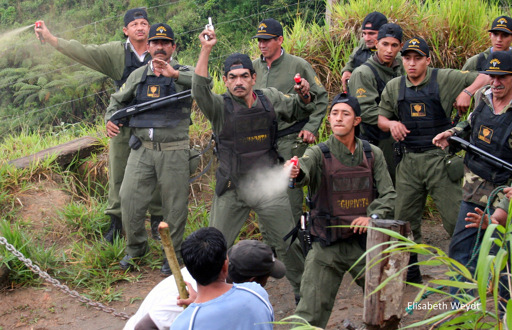An international tribunal of environmental rights activists recently found extensive evidence that the Canadian mining sector is “guilty for the violation of Rights of Nature across South America and Serbia.” The guest on this episode of Mongabay’s podcast corroborates these accusations, and describes human rights abuses in South American nations that she has seen in her reporting, too. Brandi Morin, a Cree-Iroquois-French environmental journalist and freelancer for Mongabay, discusses how Canadian mining projects impact ecological health and the rights of Indigenous communities in places such as Ecuador and Bolivia. “Canada is the mining giant of the world, and around the world, they’re getting away with atrocities. They aren’t regulated very well to hold them to account. It’s a free-for-all out there,” she says. Speaking of her recent travels in Bolivia to visit communities impacted by mining, Morin says, “You can see the pollution, you can smell the pollution. The rivers are like garbage bins. The animals cannot live and thrive. They are deformed; they die. And the people that are living there are really, really working to survive.” Mining projects are often justified as being a necessary part of the “green energy transition,” and while experts and scientists agree that renewable energy sources are necessary (and that their manufacture relies on mining), they strongly question mining’s negative impacts on Indigenous communities and the biodiversity they steward, advocating instead for demand reduction of such minerals, and more strategic and ethical planning for how mining occurs, when it does. “We don’t have…This article was originally published on Mongabay
From Conservation news via this RSS feed


